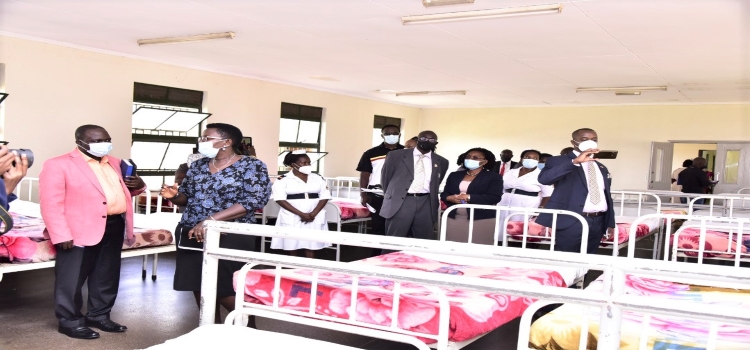Substance abuse biggest contributor to mental illness

Legislators on the Committee on Health have learned that alcohol and drug abuse are the biggest contributors to the spike in mental illness across the country.
The Executive Director of Butabika National Referral Mental Hospital, Dr Juliet Nakku, told the MPs touring the facility on Wednesday, 15 September 2021 that most of her patients suffered from mental illnesses related to substance abuse and depression.
“We have an imminent pandemic affecting a lot of our young people stemming from abuse of alcohol and drugs like opium, marijuana, khat and in some instances, cocaine,” said Nakku.
She revealed that the surging cases of mental illness had driven the number of patients at the hospital, located in Butabika, a suburb in Kampala, to over 850 way above its capacity of 550 inpatients.
“The rise in numbers has put pressure on the resources of the hospital and is constantly oscillating between 800 and 1,000 inpatients,” she added.
Nakku pleaded for deliberate measures to fight the growing number of substance abusers among the youth – with one of them being the government better financing the hospital to enable it sensitise communities about mental health.
Another encumbrance, she noted, was that the hospital was operating with a skeletal human resource so tight that there are situations where two attendants cater for over 200 patients at a time.
“We have about 157 nurses and 13 doctors that support the entire hospital and patients coming in from across the country,” she revealed.
The committee chairperson, Dr Charles Ayume, said, “Many of the young people are depressed because of unemployment and poverty so they decide to use the little they have to engage in substance abuse as a distraction from their woes.”
The chairperson noted that the issue of mental health was obscure and adversely neglected by society thus requiring increased advocacy and awareness.
“You need to do more promotion on mental health at community level; go to medical training institutions and at health centres and talk to these people because to many, it is a topic not discussed,” Ayume told the hospital leadership.
Committee vice chairperson, Joel Ssebikaali, advised the hospital leadership to extend its specialised services on mental health to at least regional and district health centres.
“This should be in your plan to help the people in local communities because these services are more easily accessed by people in the central region; we are ready to lobby for funding of this matter, if needed,” he added.
The committee resolved to investigate the low numbers of psychiatric specialists and push for training of more personal and mental health facilities.
